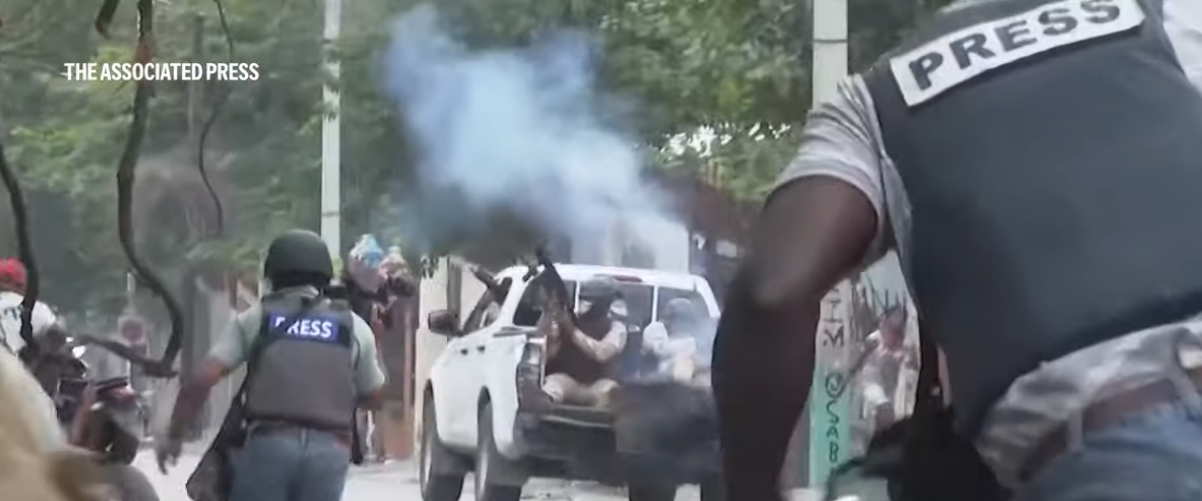Google Inc. Photo: Wikimedia Commons.
In a desperate attempt to prevent media coverage of leading presidential candidate Bobi Wine’s campaign Uganda’s communications regulatory agency in a letter has asked Google to block several online TV outlets.
Even though the U.S.-backed Ugandan dictator of 35 years Gen. Yoweri Museveni has prevented all radio and television stations from interviewing Bobi Wine, Ugandans daily follow the candidates campaign which has drawn tens of thousands of supporters.
As many as 85 of Bobi Wine’s supporters were killed by regime security forces on Nov. 18 when protests erupted allover the country after the candidate was arrested while campaigning.
The candidate has had to duck bullets by regime security forces on at least once occasion while traveling. Some analysts believe the challenger could win the Jan. 14 vote in a landslide, ending Museveni’s repressive hold on power. Last Thursday, in a bluntly worded statement the U.S. Secretary of State Mike Pompeo called for an end to the violence against opposition candidates and their supporters, and access to media. The U.S. provides Uganda with nearly $1 billion in annual financial support.
“We urge the government to ensure the safety of all candidates, respect the right of peaceful assembly of all Ugandans, and ensure that election authorities and security forces act impartially. We also call on the Ugandan government to create a safe environment for civil society and non-governmental organizations to undertake election training and monitoring,” Pompeo said.
“We are paying close attention to the actions of individuals who interfere in the democratic process and will not hesitate to consider serious consequences for those responsible for election-related violence and repression,” he added.
The online platforms that the Uganda Communications Commission (UCC) wants Google to block include: Map Media TV, JB Muwonge 2, Ekyooto TV, KK TV, Namungo Media, Bobi Wine 2021, Uganda Empya, Busesa Media Updates, Uganda News Updates, Uganda Yaffe, Ghetto TV, Trending Channel Ug, Lumbuye Fred and TMO Online among others.
UCC in a letter dated Dec. 9, 2020 asks Google to block the YouTube accounts used by Ugandans in Uganda and diaspora to disseminate or broadcast content on those platforms because they allegedly violate the Uganda Communications Act of 2013 and other content regulation laws. UCC claims the platforms “were used to mobilise riots that resulted in loss to several lives and property in Uganda.”
UCC is headed by Irene Kagwa Sewankambo.
UCC claims the owners of the accounts they want blocked disseminate inaccurate information or: extremist messages likely to incite violence against the public on account of ethnicity and political opinions, or that they may “compromise national security and cause economic sabotage, report events in a sensational, unbalanced and unprofessional manner, or contain offensive languages including profanity and blasphemy, presents sexual matters in an explicit and offensive manner, likely to create public insecurity or violence and perpetuates hatred…”
In reality it appears the regime is unnerved by daily coverage showing the humongous crowds that appear at Bobi Wine’s events as he campaigns around the country.
Separately, in another attempt to block opposition candidates’ campaign events the leadership of the Uganda Police council in concert with the Media council of Uganda ordered Police commanders across the country to block all journalists with no accreditation from covering political campaigns and also from accessing public events beginning on Dec. 21.Journalists have only a few days to pay , or 200,000 shillings to Uganda Media Council to be accredited.
These measures are designed to conceal the gross human rights violations that have accompanied the ongoing election campaigns in Uganda, by blocking citizen journalism.
It is both illegal and unconstitutional for the Uganda Media Council to dictate that only accredited journalists will be allowed to cover campaigns ahead of next year’s election. That means that anyone with a camera recording human rights violations and electoral fraud will face the wrath of the regime forces. Even accredited professional journalists have been attacked and some expelled.
The U.S. embassy in a tweet has objected to the media clampdown.






